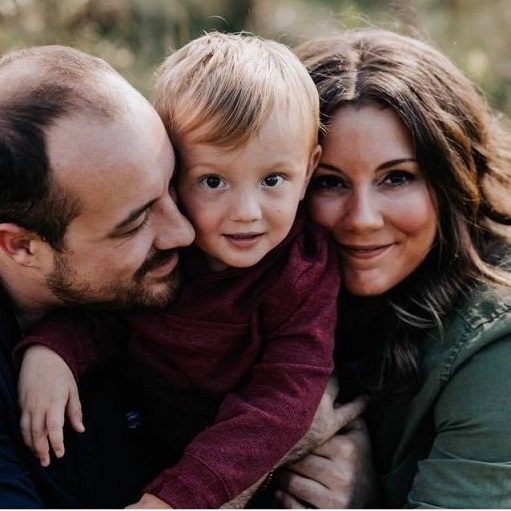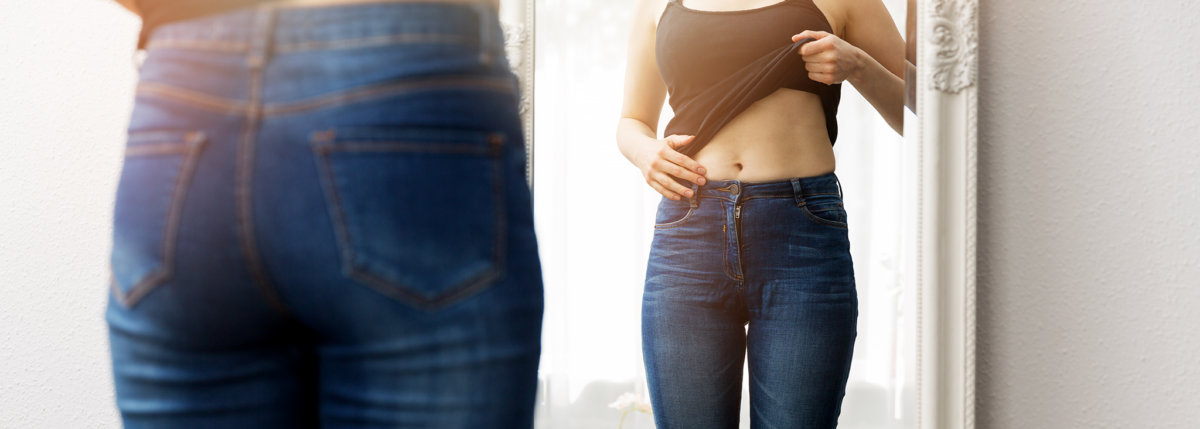Life with a T1D Eating Disorder
Editor’s Note: Warning: This post contains sensitive material about eating disorders.
Beyond Type 1 is proud to provide support for the We Are Diabetes Mentorship Program. If you or someone you know is struggling, the We Are Diabetes Mentorship Program is a FREE peer mentoring service available to individuals committed to recovering from ED-DMT1 (dual diagnosis of type 1 diabetes and an eating disorder). Our Mentors provide safe, confidential support as they work to encourage and guide their mentees towards their goal of solid and permanent eating disorder recovery. More information here. We’re adding more mentors to the program, too—if interested, click here.
In 2003, I was diagnosed with type 1 diabetes. I was 14. After my type 1 diabetes (T1D) diagnosis, I went on with life as normal. My new normal was finger pricks, insulin shots, snacks, highs and lows, ketones, et cetera. I figured I would have a daily routine of shots and eating—and that would be it for the rest of my life. As a child, your brain processes these life experiences so differently than it does as an adult. I remember feeling happy that I had type 1 diabetes. It was an opportunity for me to stand out and be different from the rest of the kids my age.
I would occasionally forget to take my insulin here and there and would correct myself hours later and not think anything of it. I would forget to check my blood sugars, forget to eat my snacks and so on. I couldn’t fully grasp the reality of how much damage this disease would have on my body from mistreatment.
When I was younger, I couldn’t physically or emotionally recognize the signs my body was giving me that something was wrong. Now, as an adult, I feel everything. I can sense when a low blood sugar is coming. I know when to lie down because I don’t have the energy to go on with my day. I know when my body needs to eat. I know when my blood sugar is starting to rise and how I’m going to treat it. I know my body now.
I’ve lived with type 1 diabetes for 15 years and for much of that time I also lived with a very dangerous eating disorder.
Shortly after my diagnosis, I realized if I did not take my insulin, the weight would start to fall off. I’ve always had issues with my weight, even as a child. I always wanted to be skinny. When I realized that I could easily lose 10 pounds in a few days by restricting my insulin—it became an addiction. I would go weeks without taking any insulin. I knew I was damaging my mind and body and I knew I needed insulin to live, but I didn’t care.
I was never in a good mood (because I always felt so terrible). I was a horrible person to be around, but I didn’t care because I was thin. Everyone would tell me how great I looked and I loved the attention. This went on for years. I would go out every night and drink, never check my sugars or take my insulin, and continue this routine repeatedly.
It didn’t take long for my family to notice my concerning mental and physical state and their willingness to help was my saving grace. I honestly didn’t realize how sick my body and mind had become. I lived in denial for years about my diabetes and eating disorder.
I remember waking up one morning so sick that I couldn’t get out of bed. I thought I was going to die. I knew I needed help. I admitted myself to the hospital for diabetic ketoacidosis (DKA) and I promised myself I would find a way to get better. After I was released, I slowly started my recovery journey.
Recovery from an eating disorder doesn’t happen overnight. There were many challenges in those first two years, but I never gave up. I found online support groups where I met others who were struggling with the same dual diagnosis of T1D and an eating disorder. These support groups were a lifeline for me. It was in one of these groups that I met Asha Brown. She was one of the few individuals who cared, listened, kept up with my recovery and tried to save my life.
In my early recovery, I met my (soon-to-be) husband and found out I was pregnant. Discovering I was pregnant truly changed the outcome of my recovery. I knew that my life was important and that someone needed me to be around for a long time. Having a healthy pregnancy became my top priority.
My future husband and my son have changed my outlook on life, and I’m so happy that I’m still here to share it with them! I hope my journey can inspire others who are currently struggling and in need of treatment. You are strong enough to do this. You can recover.
Shelby is now a mentor through the We Are Diabetes Peer Mentorship Program. If you or someone you know is struggling with diabetes and disordered eating, get connected here. Beyond Type 1 is proud to support this program.





